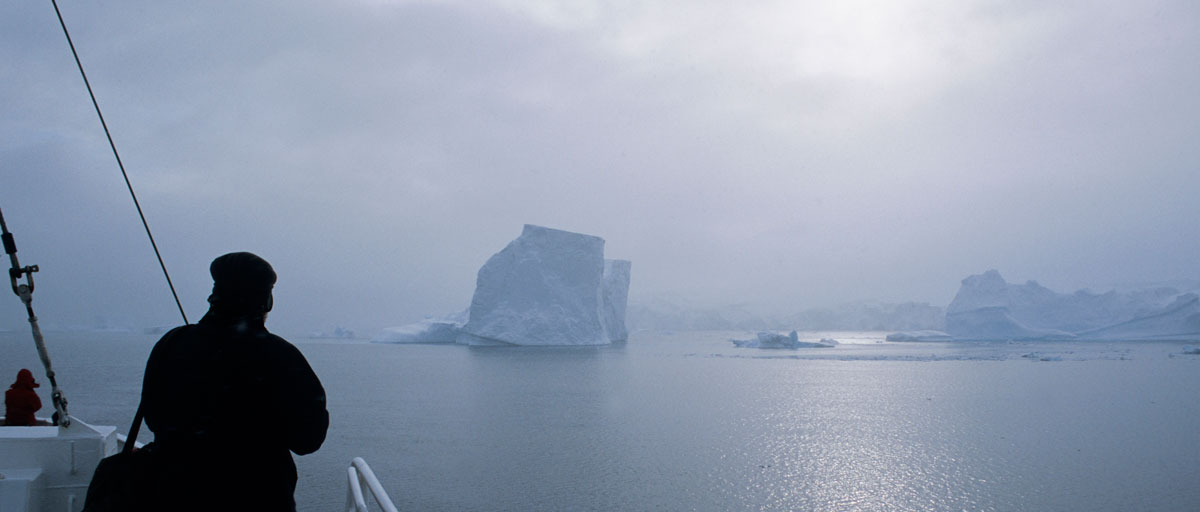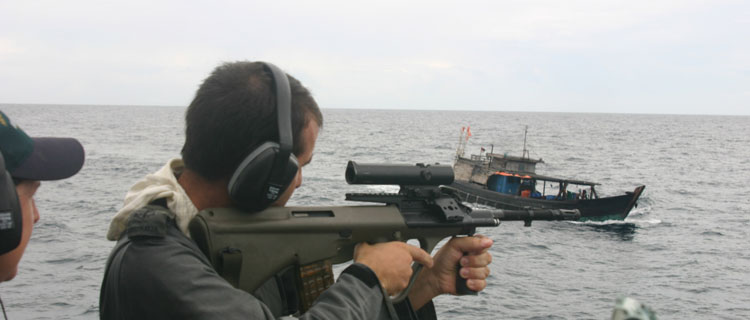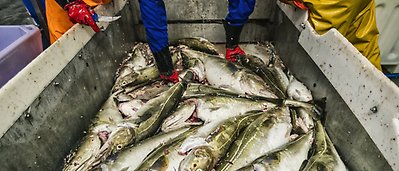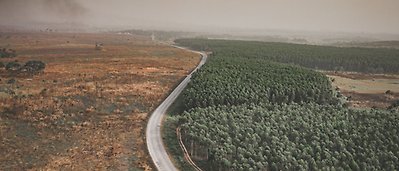
A new book takes a closer look on the governance, geopolitics, international law, cultural studies, and history of Antarctica, including a chapter on the politics around the Commission for the Conservation of Antarctic Marine Living Resources (CCAMLR). Photo: S. Zeff/Azote
fisheries
Politics of the last frontier
Centre directors co-author chapter on Commission for the Conservation of Antarctic Marine Living Resources (CCAMLR) in new book covering politics and governance in Antarctica
• Centre’s deputy science director and managing director co-author chapter in new book on Antarctic politics
• Their chapter focuses on politics and governance of Southern Ocean fisheries
• Case study highlights the history, context, successes, and challenges of the Commission for the Conservation of Antarctic Marine Living Resources (CCAMLR)
Totalling 14 million square kilometers of uninhabited land covered in ice and snow, Antarctica is in many ways the last frontier on earth. From coast to coast, Antarctica is approximately 7362 kilometres away from South Africa. As a tourist, it takes anywhere from 10 days to three weeks to travel there by boat, and travel conditions are rough. The distance and logistics in getting there also means that there is less competition for the natural resources available.
However, that does mean that competition for resources is less intense.
A newly published book, Handbook on the Politics of Antarctica, focuses on a wide range of topics on the governance, geopolitics, international law, cultural studies, and history of Antarctica. It includes chapters from experts from all over the globe, and converges top social sciences and humanities research on the Antarctic and Southern Ocean.
Centre researchers Henrik Österblom and Olof Olsson, also the centre’s deputy science director and managing director respectively, have written a chapter which focuses on a Southern Ocean fisheries case and the politics around CCAMLR.
The CCAMLR context
To effectively govern resources, research dictates that institutions must be in place. In the case of the Southern Ocean, a large commission was set up to ensure that resources are managed in a fitting way.
As Österblom explains, “The Commission for the Conservation of Antarctic Marine Living Resources (CCAMLR) is an intergovernmental organization with a mandate to manage natural resources in the Southern Ocean.”
Österblom and Olsson’s chapter focuses on CCAMLR in the past, and what the past can say about our future ocean.
CCAMLR, while a popular case study used to illustrate the impacts of climate change and international markets, is still relevant to examine in a time of global complexity and uncertainty.
Our fundamental question is this: What challenges is this international organization faced with when attempting to implement a regional, ecosystem-focused approach in the global context of the Anthropocene?
Henrik Österblom & Olof Olsson, co-authors
The chapter investigates the dynamics of CCAMLR through describing the social, political, financial, technological, and ecological factors, as well as the historical social-ecological context, and the roles of individual actors involved in CCAMLR’s successes and challenges. Most notably, the chapter highlights how CCAMLR has grown.
As Olsson explains, “CCAMLR has evolved substantially from an organization that originally focused most of its practical activities on krill, to an organization with a wide mandate managing a range of species, habitats and ecosystems. This diverse ecosystem management portfolio has contributed to the perception of CCAMLR as a role model in international fisheries management.”
Handbook synopsis
In addition to Österblom and Olsson’s CCAMLR case chapter, there are a number of other topics covered, from modern explorers, to Antarctic cultural heritage, to search and rescue platforms. The book is broken down into four sections: (1) Conceptualizing Antarctica, (2) Acting in and Beyond Antarctica, (3) Regulating Antarctica, and (4) Futures in the Antarctic.
While the topics are vast, and the sections broad, the book brings all of these topics together to look at how the Antarctic stands in and against the Anthropocene.
Österblom H., Olsson O. 20017. CCAMLR: An ecosystem approach to the Southern Ocean in the Anthropocene. In: Dodds K., Hemmings A. D., Roberts P., editors. Handbook on the Politics on the Antarctic; p. 408-421.
Henrik Österblom is the deputy science director at the Stockholm Resilience Centre. His research focuses on globalization and marine social-ecological systems and he has previously worked with understanding the dynamics of illegal fishing in the Southern Ocean.
Olof Olsson is the managing director of the Stockholm Resilience Centre. His research focuses on marine ecology and he did his PhD on the behaviour ecology of King penguins breeding in South Georgia, the Southern Ocean.







